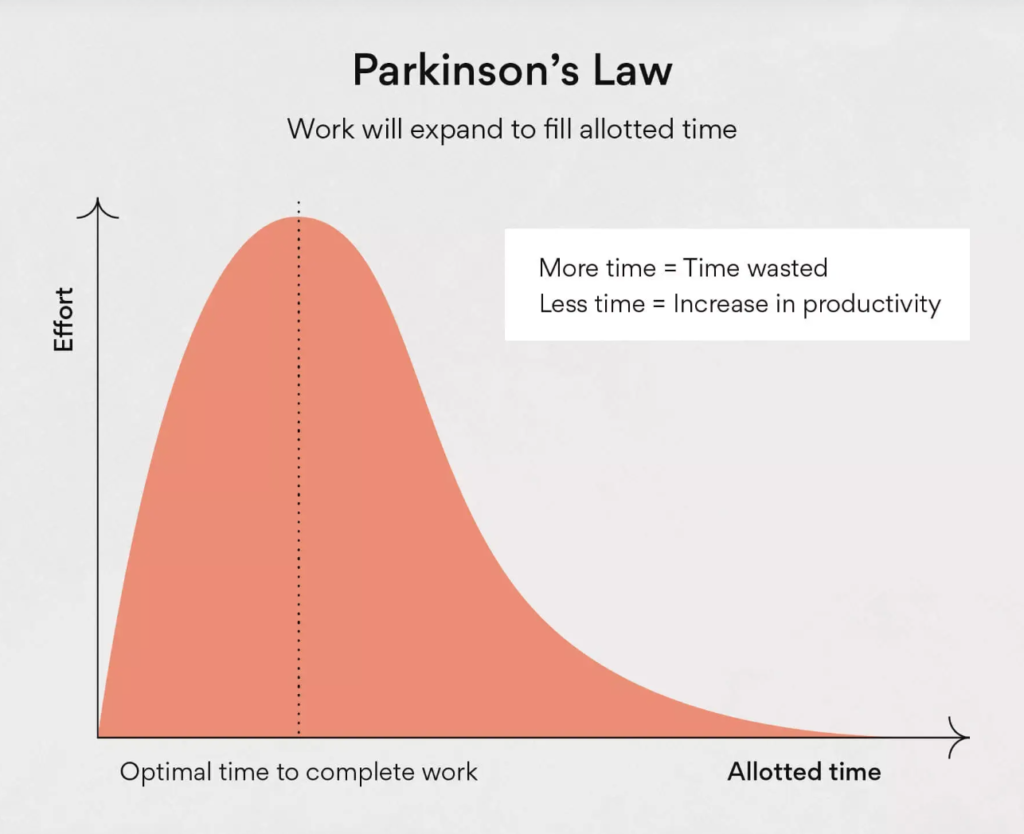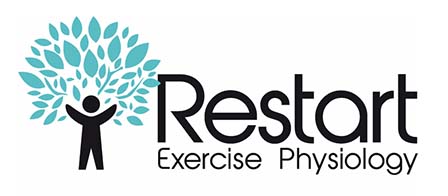Until recently, I was blissfully unaware of a law termed Parkinson’s Law. Then, in the past two months, I have interestingly read about it in two separate books.
Have you heard of Parkinson’s Law?
Parkinson’s Law is a phenomenon I’m aware already exists, but just had no idea that such a human tendency had an actual name.
So what is Parkinson’s Law?
Cyril Northcote Parkinson was a British naval historian who first introduced Parkinson’s Law in a satirical essay written for “The Economist” in 1955. He then went on to write a book titled, Parkinson’s Law: The Pursuit of Progress. His story in the essay involves a woman whose sole task for the day is to send a postcard.
Because she has the entire day to complete this task, she spends an hour finding the card, half an hour finding her glasses, 90 minutes writing the card, and so forth until she fills her day. His story is meant to explain how work expands to fill the time available for its completion. While Parkinson’s example may sound extreme, we’ve all experienced this to some degree.
This law has also been simplified to read as:
“if you wait until the last minute, it only takes a minute to do”.
Or the procrastinators mantra:
“why do today what you can do tomorrow”.

We’ve all been there…a deadline looms, yet just like last time we leave it until the day before to make a sincere start on the project. Or worst still, the morning of! The stress caused by this last-minute scrambling makes us vow to be more prepared and proactive next time, however history has a habit of repeating itself.
Parkinson’s Law and its effect on our health
Please understand that the following information is purely anecdotal, and simply my own interpretation of this law and how it may tie in with achieving our health and wellness goals…or falling short.
As an Exercise Physiologist, I’m blessed with the fortunate personal attribute of intrinsically enjoying physical activity (by intrinsic I mean that I enjoy exercise for exactly what it is: the opportunity to move my body, to become stronger and more physically capable, to better my health in all facets, and to simply have fun). I absolutely understand that this is not the case for many others however, and why sticking to exercise can be a challenge.
Many of our patients require a bit more persuading as to why regular exercise is important, or need to be asked some thought-provoking questions to better understand their own reasons for moving more (read my previous blog 3 Questions to Ask Yourself When Motivation is Lost for example questions). And even then, sometimes physical activity still isn’t a priority and misses out altogether.
In my own experience, I know my exercise habits have gone up a notch in terms of intensity and dedication when I have a set time-frame involved. A few of personal examples that spring to mind include:
- completing a 2 kilometre row in less than 7 minutes prior to Xmas a few years ago,
- doing extra aerobic fitness work during AFL pre-season to ensure I was fit and confident for round 1,
- working on running specific exercises to score a personal best on the 1200m Shuttle Run re-test (and ensure bragging right over my colleagues – click here to see how we went).
Many work-based tasks are also benefitted by imposed deadlines and less time to complete, including this blog for example!
Parkinson’s Law and it’s effect on urgency
As you’ve already learnt from past experience, if there is less immediacy for a task, we will find ways to prioritise other activities and prolong time until completion.
At Restart, we are advocates for sustainable and enjoyable forms of exercise for long-term health and longevity; making movement a daily habit and a regular part of your day to day life.
However, we also understand that some people are particularly driven by time-frames and the urgency this can provide (SMART goals are an integral part of establishing clear and measurable targets with our patients, as well as helping determine if we are on the right track with our exercise prescription). An example includes being told you have to lose a certain amount of weight before surgeons can engage in a particularly sensitive but highly-important surgery.
3 tips to overcome Parkinson’s Law in your pursuit for better health
Based on my above musings, here are my three tips to overcome Parkinson’s Law to achieve your wellness goals sooner rather than later (prior to this, I recommend being clear on why exercise is important to you by being clear on the questions included in our blog on finding motivation linked above):
1. Create self-imposed goals to make yourself accountable
With a clear vision of where you want to get to health-wise, you will be less likely to procrastinate and prioritise other tasks ahead of physical activity. Create a plan to help manage your time, assess likely barriers for success and how to navigate them, and leverage off advice and recommendations from health professionals and your GP to help establish realistic and time-bound goals.
2. Plan for success
Envisage achieving your goal in your desired time-frame and then work backwards. How much movement, what mode of exercise, and at what intensity do you need to perform to achieve your goal/s? This is where speaking with an Exercise Physiologist can be invaluable – once you know what your ideal outcome is on the macro scale, we can strategise and plan what each week of exercise looks like. Knowing that each day and week of movement is an integral cog in the greater machine of health success will provide motivation to make it happen. Aligning other key lifestyle areas such as your nutrition and recovery will help turn a strong plan into a successful one.
3. Schedule movement into your daily routine
Starting each day and knowing when you have a movement break or workout scheduled means it is much more likely to happen. If you are someone who continually finds it difficult to ‘find time’ (otherwise known as ‘make time’) to exercise but can tick off most other items on your to-do-list, then treat exercise no differently and schedule it in! Keep yourself accountable and stick to your schedule, knowing that more regular physical activity will have a vast amount of benefits on both your physical and mental well-being.
Conclusion
Viewing your health as your greatest asset has a way of highlighting its importance. Unfortunately for many, it’s not until our health begins to breakdown that this realisation is made.
If you are noticing a downward trend in your physical capacity, need support with creating a realistic plan to overcome an injury, achieve a weight loss goal or reverse your Type 2 Diabetes medication, my team and I at Restart can guide you towards a happier and healthier place. Parkinson’s Law may rear it’s head from time to time (we are only human after all), but by implementing my three above strategies you’ll be well-equipped to stay true to your intentions and achieve your wellness goals.
Luke
References
- https://asana.com/resources/parkinsons-law, accessed 26th February 2024
- Burkeman, O., Four thousand weeks: Time management for mortals (2024) Random House

0 Comments